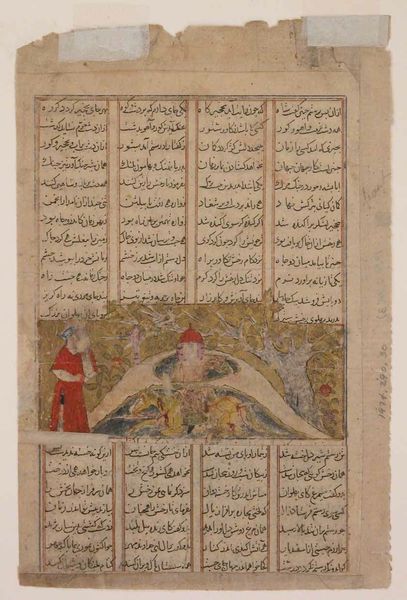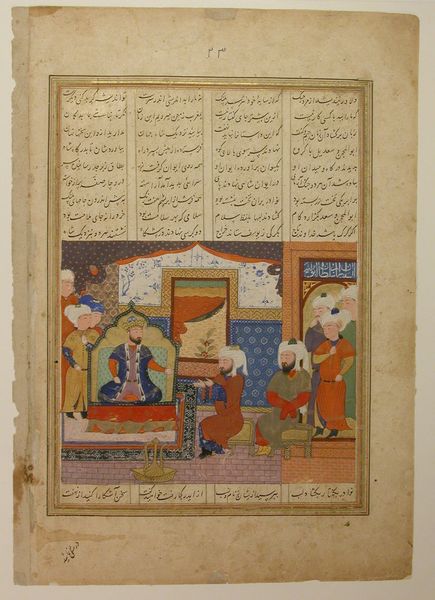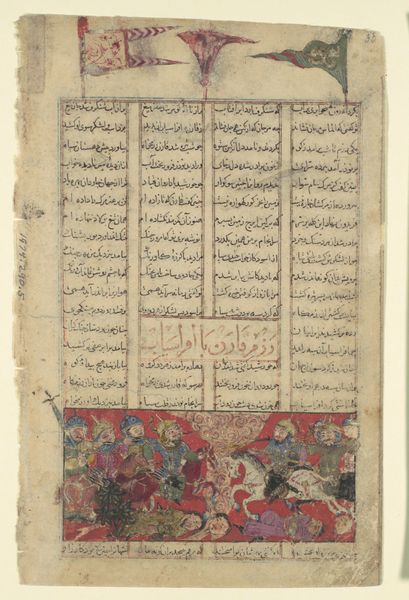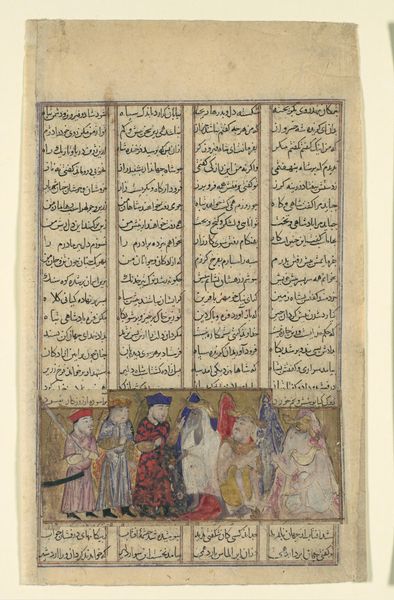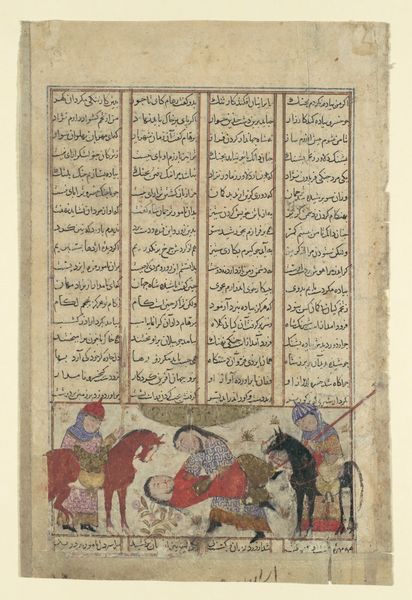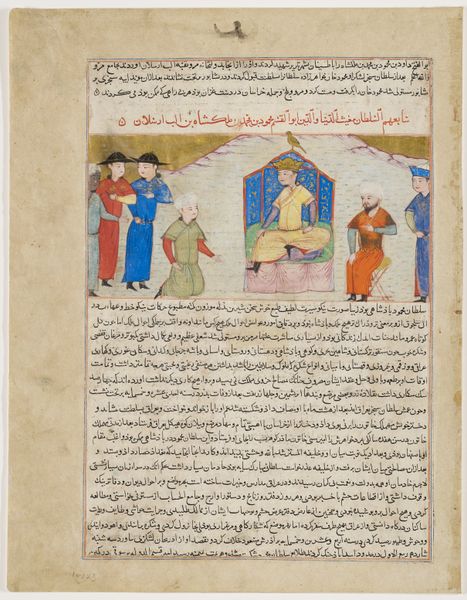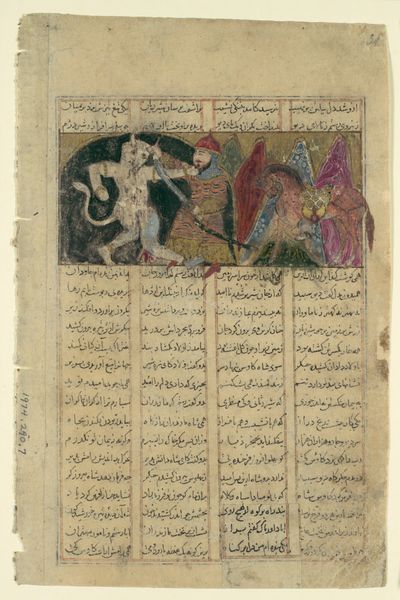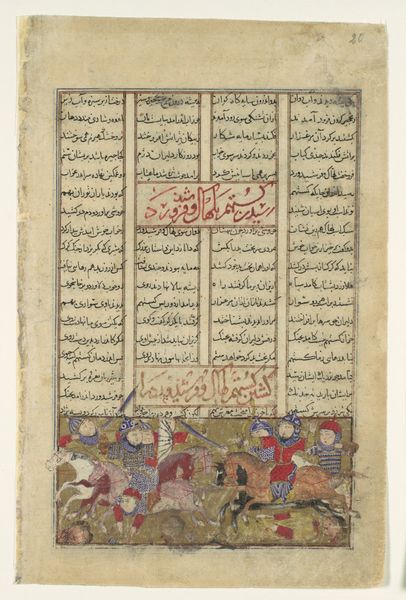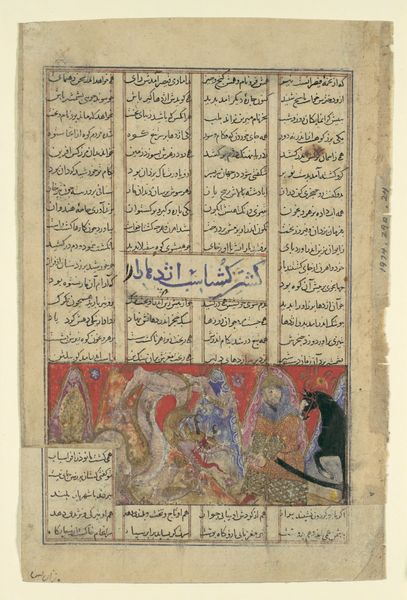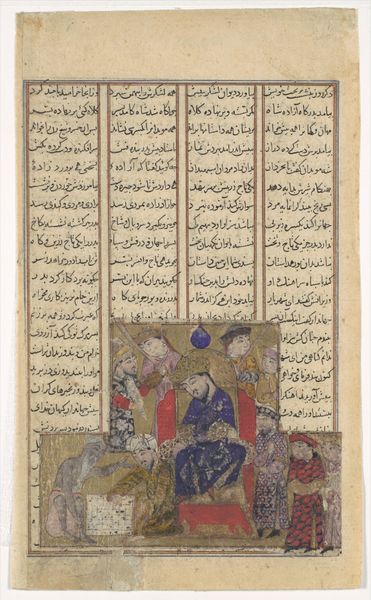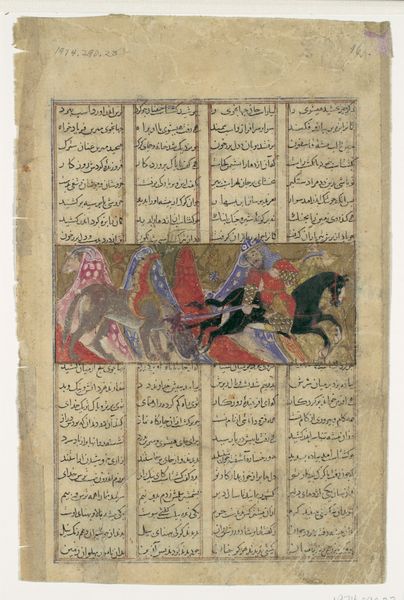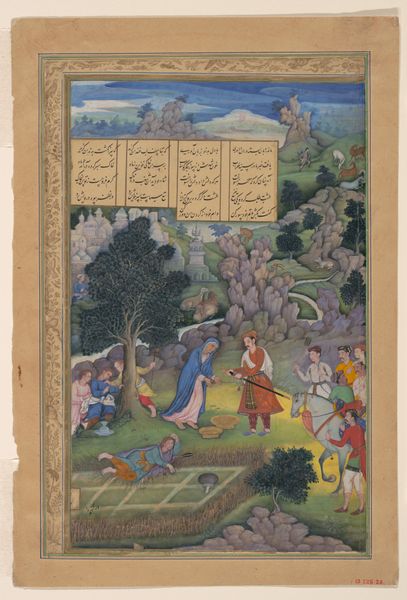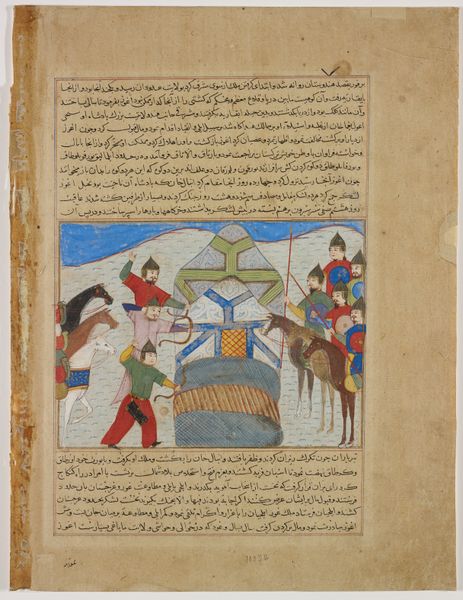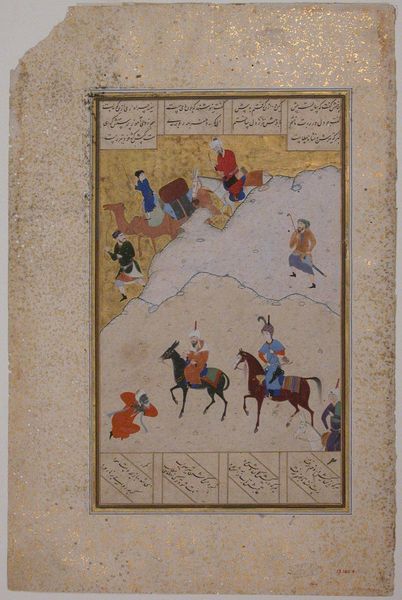
"The White Horse Got Stuck to a Rock in Mount Vindhyachal", Folio from a Razmnama 1590 - 1640
0:00
0:00
painting, watercolor
#
narrative-art
#
painting
#
landscape
#
figuration
#
watercolor
#
islamic-art
#
history-painting
#
miniature
Dimensions: Page H. 13 3/4 in. (35 cm) W. 8 15/16 in. (22.7cm) Painting: H.13 in. (33 cm) W. 8 5/16 in. (21.1 cm)
Copyright: Public Domain
Editor: Here we have "'The White Horse Got Stuck to a Rock in Mount Vindhyachal'", a painting made between 1590 and 1640 by 'Abd al-Rahim, a folio from a Razmnama currently housed at the Metropolitan Museum of Art. I’m struck by how the artist balances a detailed landscape with such an unusual, almost comical scene in the foreground. How do you interpret this work? Curator: It’s fascinating to consider this scene within the larger context of the Razmnama, the Persian translation of the Hindu epic, Mahabharata. That detail isn't simply a comical element but an intentional juxtaposition. We're seeing a powerful convergence of cultures here. Look at the rock formations, the horse—do you see how they are stylized? Editor: Yes, there’s a distinct flatness, particularly in the rendering of the horse and the figures at the bottom. They almost feel pasted onto the landscape. Curator: Precisely! It reflects a traditional Persian miniature aesthetic blended with an attempt to visualize a Hindu narrative. This particular scene is also heavy with symbolic significance. The stuck horse is arguably a motif of temporary impediment within a grand, sweeping journey, a test perhaps, encountered on the path of righteousness. Does that make sense to you? Editor: Yes, it does! I didn’t consider that. I was focusing more on the literal image, but seeing it as part of a broader narrative gives it so much more depth. Curator: Consider how the Persian artists, while illustrating a foreign epic, subtly infuse their own artistic and cultural language. The act of translation extends beyond words; it becomes a translation of visual culture. Editor: I see it now. It’s amazing how much can be layered into a single image, drawing on different cultural threads. I definitely look at this in a completely different way now.
Comments
No comments
Be the first to comment and join the conversation on the ultimate creative platform.
